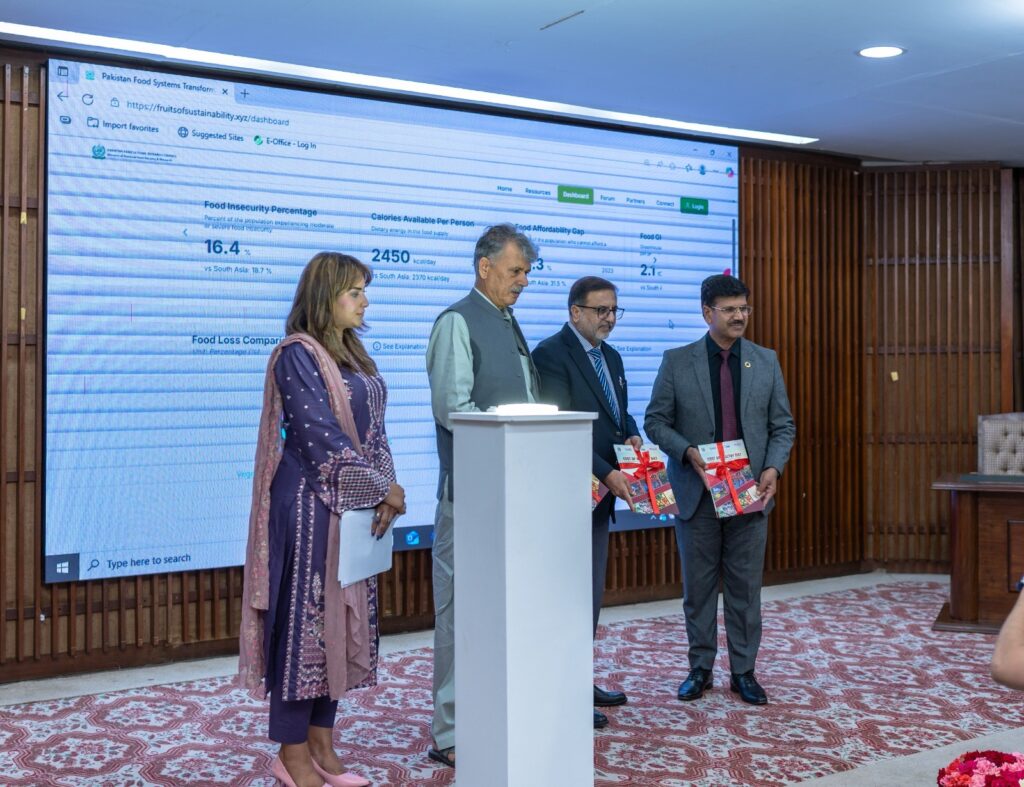The event took place at the NARC Auditorium
and was organized by the MoNFS&R in
collaboration with the PARC and GAIN
Correspondent

Islamabad: The Government of Pakistan has officially launched the Pakistan National Food Systems Transformation Website – Digital Food Systems Platform along with the Cost of a Healthy Diet (CoHD) Report for the First Quarter of 2025. The event took place at the NARC Auditorium and was organized by the Ministry of National Food Security and Research (MoNFS&R) in collaboration with the Pakistan Agricultural Research Council (PARC) and the Global Alliance for Improved Nutrition (GAIN).
High-level Participation and Key Presentations
Federal Secretary of MoNFS&R, Mr. Amir Muhyiddin, graced the launch as chief guest. The event was attended by representatives from the Pakistan Bureau of Statistics (PBS), technical experts, think tanks, and development partners.
In his keynote address, Mr. Muhyiddin highlighted the platform as a critical public good. “This digital tool provides credible, subnational data that will support evidence-based planning and ensure nutrition, climate, and food security priorities are addressed at both national and provincial levels,” he said.
GAIN Highlights Key Milestones Since UNFSS
Mr. Faiz Rasool, Head of Policy & Advocacy at GAIN Pakistan, shared milestones achieved since the UN Food Systems Summit (UNFSS). These include the institutionalization of the Food Systems Transformation Secretariat at PARC, formation of a National Steering Committee and Technical Working Group, and the launch of a Sub-national Food Systems Dashboard. He emphasized that the digital platform would enhance coordination, transparency, and inclusive planning.
Technical Insights and Future Priorities
Dr. Ghulam Sadiq Afridi, Secretary PARC and UNFSS Technical Working Group lead, presented an overview of the platform and key findings from the Q1 CoHD report. The analysis provides valuable insights into food affordability and access challenges in Pakistan.
Looking ahead, the Ministry plans to update the National Food Security Policy, institutionalize inter-ministerial collaboration, expand dashboard tools, and strengthen provincial capacities for data-driven program implementation.






















